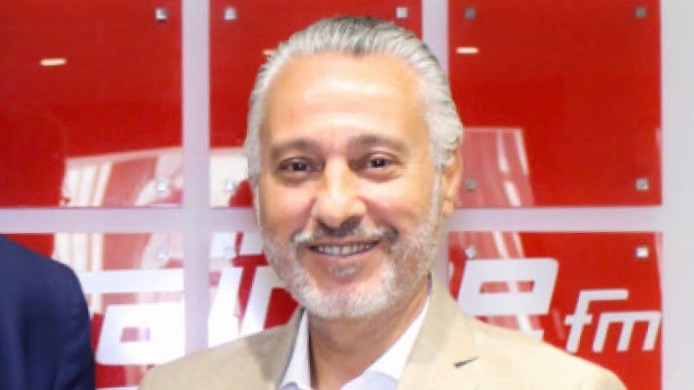On Tuesday, February 14, United Nations High Commissioner for Human Rights Volker Türk issued a statement expressing his concerns over the “deepening crackdown against perceived political opponents and civil society in Tunisia” and continued attempts to undermine the independence of the judiciary.
He also expressed concern about the harsh charges leveled against some of those arrested, such as “conspiracy against state security” and “causing offense against the head of the state,” as well as the fact that some of the trials are being conducted by military courts. The UN called on the Tunisian state to desist from such practices and uphold the rule of law.
Tunisia’s security forces have unleashed a wave of political arrests in the country since Saturday. More than a dozen people—activists, judges, and journalists, among others—have been arrested so far.
On Monday, three people were arrested by the security forces. Among them was Noureddine Bhiri, vice-president of Ennahda, the main opposition party, who was arrested from his home, as reported by Middle East Eye. Bhiri’s wife claimed that hundreds of people surrounded their house and conducted a raid before he was arrested. Bhiri had been arrested last year as well, after being accused of sending youth from the country to Syria to fight on the side of the Islamic State (ISIS) terrorist group.
The head of one of Tunisia’s largest and most popular radio channels, Mosaique FM, Noureddine Boutar, was also arrested on Monday, along with Lazkar Akremi, founder of the Nidda Tounes party.
On Saturday, security forces arrested Khayen Turki, leader of the social democratic Ettakatol party and a critic of President Kais Saied. According to his lawyers, Turki has been charged with “conspiring against state security.”
Khayem Turki was abducted from his house at down, his house was searched and all electronic devices confiscated. No information yet on what brigade is detaining him or under which law. His location is still unknown to his lawyers and family #Tunisia https://t.co/CkJD37J8BW
— فداء الهمامي Fida Hammami (@FidaaHammami) February 11, 2023
The Tunisian government, however, defended the arrests, saying that these were “serious cases related to national security” and dismissed claims of political repression. It also criticized the UN statements as “hasty and inaccurate.”
“Reminiscent of pre-revolutionary practices”
The arrests are being viewed as part of a fresh wave of political repression under President Saied. Reacting to Boutar’s arrest, Yassine Jelassi, president of the National Union of Tunisian Journalists (SNJT), called it a “step backward.” Referring to the long years of Zine el-Abidine Ben Ali’s authoritarian rule in the country before the 2011 popular uprising, she called the arrest “reminiscent of pre-revolutionary practices.”
Mosaique FM radio issued a statement demanding the immediate release of Boutar, claiming that his arrest was an “operation of intimidation” to undermine “the independence of the radio and the freedom of journalistic work.”
A statement against the arrest of Bouter was issued on Twitter by Reporters Without Borders as well, saying that it was “unacceptable” and indicative of the “repression that is falling on the press in Tunisia.”
🔈🇹🇳 The arrest of the director of @RadioMosaiqueFM, Noureddine Boutar, without an arrest warrant or official reason, his interrogation which focused on his editorial choices, is as unacceptable as it is sadly revealing of the crackdown on the press in #Tunisia. pic.twitter.com/41VyRkgWcp
— RSF (@RSF_inter) February 14, 2023
Ennahda also issued a statement on social media condemning the “abductions and systematic abuse of critics of the Kais Saied coup.” It also expressed solidarity with Boutar and demanded “the release of all those detained outside the framework of the law.”
Using long-term instability and the popular perception of corruption as a pretext, Tunisian President Saied suspended and later dissolved the parliament and dismissed the government in July 2021. He initiated a set of changes in the country, including a new constitution and new electoral laws with far greater centralization of power. He also dismissed over 50 judges after reconstituting the judicial council.
The opposition has called Saied’s so-called political process a “presidential coup” and organized numerous protests demanding his resignation. Due to their boycott calls, the referendum in July last year for a new constitution and the national elections held earlier this year saw a historically low voter turnout.





